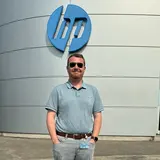Internship Spotlight: Reid Jackson ’23, World Food Programme
Reid Jackson ’23 shared what he worked on this summer as an intern with the World Food Programme in Malawi.
We asked rising second-year MBA students to check in from their summer internships, where they are applying the lessons of their first year at Yale SOM.

Reid Jackson ’23
Internship: World Food Programme, Malawi Country Office (Lilongwe, Malawi)
Hometown: Mercer Island, Washington
Pronouns: he/him/his
Clubs and affiliations: Africa Business & Society Club, Economic Development Club, Social Impact Consulting
Favorite SOM class: State and Society
Favorite SOM professor: Lesley Meng
Favorite New Haven eatery: Mecha Noodle Bar
Favorite thing you do in New Haven or SOM to unwind: Lay on my couch.
Bonus fact: I had no experience in development or humanitarian work before this summer.
This summer I volunteered with the World Food Programme (WFP) in Malawi on the Monitoring & Evaluation (M&E) team, a data analytics group dedicated to designing mechanisms to monitor and evaluate the impact of WFP’s activities. Malawi is a small, but relatively densely populated, landlocked country in Southern Africa. Despite long-term positive trends, Malawi still faces acute food and nutrition security challenges.
My work focused on two key WFP programs: Home-Grown School Feeding (HGSF) and Integrated Resilience (IR). HGSF provides primary school children with breakfast every day by facilitating connections between local farmer organizations and primary schools and providing funding. IR is an umbrella term for interventions that focus on building sustainable food systems and includes a wide array of initiatives such as developing irrigation schemes and operating village savings and loans programs. These activities produce a vast amount of data—my job was to design an improved data flow and building data visualizations for the two programs.




I spent the first few weeks learning and understanding the context for the HGSF and IR projects. I attended a weeklong Integrated Resilience “bootcamp” that included a visit to a village in Chikwawa, a southern district in Malawi. As part of a focus group with women in the village, I learned about the success of watershed management activities in reducing crop losses but also heard frustration with the rising prices of staple foods, which reduced the real value of the cash transfers WFP provided.
For HGSF, an M&E officer and I conducted field visits to primary schools and farmer organizations to understand the challenges they had reporting information crucial to assess the efficacy of the program. With their feedback, we were able to redesign the paper forms to make it easier to capture data on school attendance, foodstuffs bought and sold, and the meals prepared for students.
The last five weeks were fast-paced, requiring heads-down focus on synthesizing my learnings and incorporating them into new data processes for HGSF and IR. For IR, I delivered a redesigned and digitized process for collecting data from 264 GVHs (groups of villages) across 265 indicators (e.g. number of irrigation schemes developed) and a Tableau dashboard that allows for comparison between target and actual performance throughout the year. For HGSF, I delivered five redesigned forms that schools and farmer organizations will fill out monthly and a Tableau dashboard that provides insight into how schools are spending their funds and the dietary diversity of students’ meals.
During this process I drew on insights from across the core curriculum. Lessons from Managing Groups & Teams and Power & Politics helped me navigate both the challenges and privileges I have coming to Malawi from the U.S. The Innovator course provided direction when interviewing both school officials and beneficiaries on my field visits.
The recruiting process for WFP and development/humanitarian organizations is significantly less structured than more traditional MBA-recruiting industries. I discovered this opportunity through the generosity of a long chain of networking referrals willing to talk with me. The sixth connection I spoke to ended up being my manager for the summer. I finally secured the opportunity in late April—patience and resilience are key in unstructured industries!
Working for an organization like WFP in sub-Saharan Africa was my goal for studying at SOM, but coming from a career in finance and tech, I was uncertain about whether my on-the-ground experience would meet my expectations. I’m happy to say many of my hypotheses were validated. I was energized by using the skills I’ve developed to contribute to the mission of ending hunger and increasing food security and incredibly motivated by being able to directly interact with the beneficiaries of WFP’s work.
Reid Jackson is a recipient of the Linnie and Michael Katz ’76 Fund for Yale SOM Student Travel and Research.



